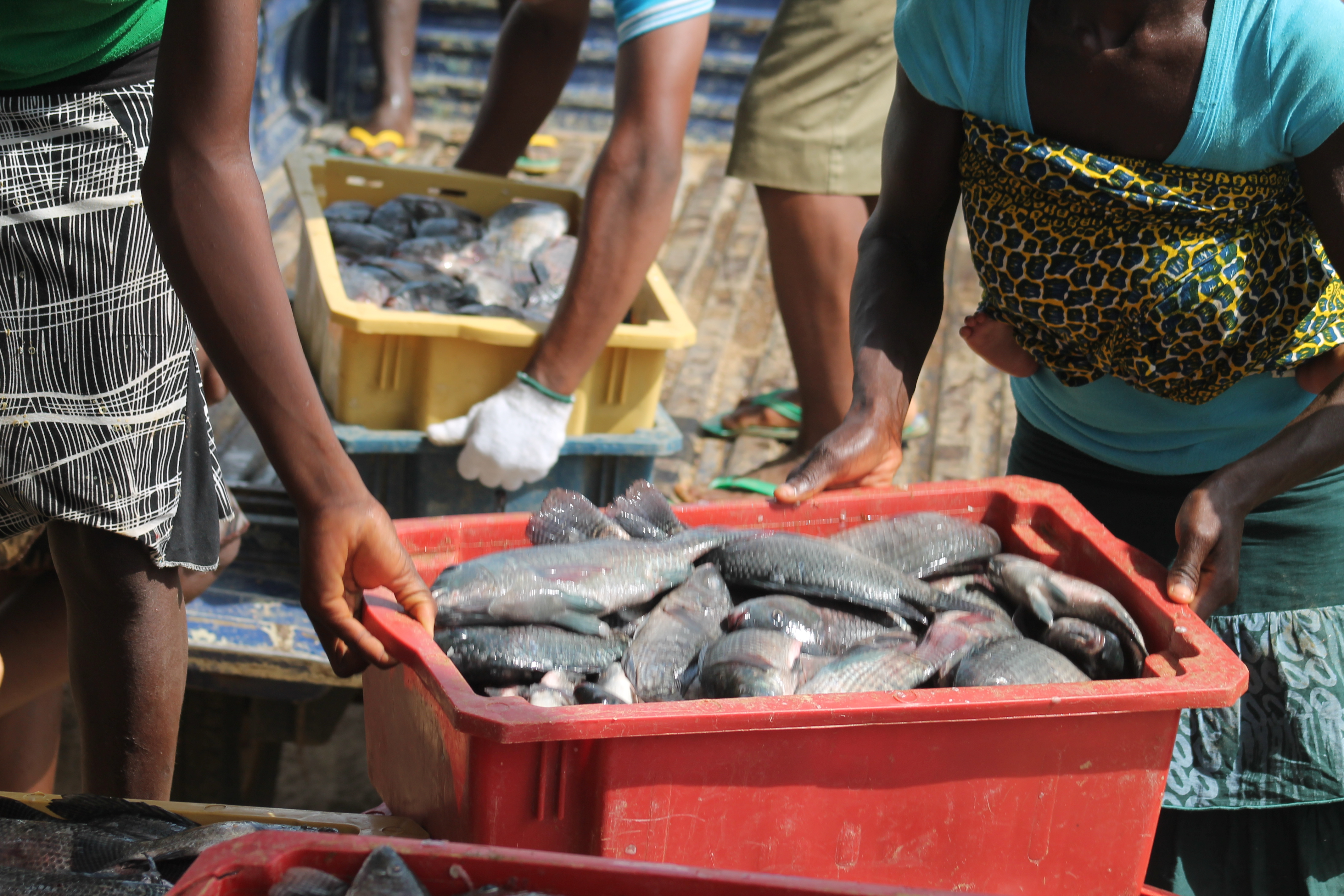How to start fish farming in Nigeria is always a question for those who are interested. With nothing but fish farming feasibility studies at your disposal, it can be discouraging, however, if properly planned, fish farming can be a successful source of income. Fish farming involves rearing fish commercially in enclosures or tanks such as fish farms, this method is called aquaculture. There are various methods of fish farming, maricultural is a category for other methods. According to Wikipedia A facility that releases juvenile fish into the wild for recreational fishing or to supplement a species’ natural numbers is generally referred to as a fish hatchery. Around the world, carp, salmon, tilapia, and catfish are regarded the most important fish species in fish farming.
Fish farming in Nigeria is popular and lucrative. This is because of the insatiable demand for fish products, especially Mackerel, Tilapia, Catfish which reels in a lot of revenue annually and grows the industry. In Africa thousands of individuals venture into agriculture yearly, which not only boosts food sources, it also boosts the economy and reduces unemployment rates. Substantial support from various institutions in Nigeria also makes aquaculture a desirable venture for the people.
Benefits of Fish Farming in Nigeria
When thinking about how to start fish farming, you must consider the benefits. If it is not beneficial there is no point starting because the main aim of a venture is for benefits. Benefits aid growth.
-
Government support
In a bid to make agriculture more desirable to the youth, some government bodies had put attractive capital incentives to aid potential farmers in their business operations. It is a known fact that capital is one of the biggest hinderances when it comes to starting a business. Also, various policies have been put in place to grow this aquaculture sector of agriculture.
-
Health benefits
Fish is a great source of protein; therefore, fish farming offers the people more protein sources for the populace. Also, it provides more food for the people. Due to the controlled environment and feeding on a farm, farm fish are more nutritious wild counterparts. This also makes them healthier than wild fish that may have been exposed to chemicals disposed of in the natural waters.
-
Job creation
The high unemployment rate is one of the menaces of Nigeria’s economy, fish farming will provide jobs for a good number of individuals, especially the youths. The increased productivity will increase food production and therefore, create more jobs.
-
Economic growth
The overall growth of the agricultural sector will boost the nation’s economy as the revenue will contribute to the country’s GDP. The fishery market is explosive because the population growth in Nigeria is rapid. Fish farming allows the industry meet the demand for fish as wild catches are not enough to satisfy this need. The constant wild fishing will also endanger the various species popularly farmed. Also, most Nigerians tend to buy fish instead of meat because it is cheaper.
-
Preserve natural ecosystems
Fish farming is a way to preserve the natural ecosystems. Fish in farms are reared and sold to the market at maturity. The power to control and initiate reproductions saved the industry the need to constantly catch wild fish, not knowing the procreation rate.
-
Low operating costs
Fish farming is known to have less threatening vices as opposed to other forms of farming. Also, the operations budget for fish farming is lower than other farms. This is because of the affordable cost of fish, fish feed, and other operation tools.
How to Start Fish Farming in Nigeria
After understanding the benefits of fish farming, there are other factors to consider before starting your fish farm. These factors work hand in hand and must be adequately present for fish farming to be successful in Nigeria.
-
Financial Analysis/Planning
For any venture to work it must have a plan. A plan helps guide decisions and choices to not incur a loss. Before starting a fish farm a financial analysis and plan must be made. Capital starts the process. You must consider the costs of resources needed to run the farm and licenses. This will allow you create a budget if the financial requirements cannot be met, fish farming will not be a good idea. These resources could include, location, water supply, human resources, transportation, feed, fingerlings, construction, construction design, construction material, labour etc.
-
Licensing
To run a business as crucial as fish farming, you need a license. This license grants you the freedom to operate. A license means your farm is legitimate and meets all organisational requirements as farm produce have a direct effect on the producers and economy. Without a license, you cannot run a commercial fish farm. A license can be obtained from the Corporate Affairs Commission. Also, a clearance from fish farming-related organisations is needed to operate.
-
Secure a Location
There is no farm without a location. You must secure a location that the farm will operate. That location also needs to fulfill other factors, such as size, water supply, construction dangers, accessibility, nearness to the market, drainage friendly, security etc. Your location choice is essential for your business to thrive.
-
Pond Construction
Fish are housed in ponds; therefore, ponds or pools need to be constructed to house the fish. These ponds serve as farm face and living space for each group. Asides this, the type of pond to be constructed must be decided. The type of pond will determine the design and size. To get the best result, you must factor in your goals for the fish or pond.
-
Water Source
Fish live in water. There is no fish farm without an adequate source of water. Whatever the source of water may be, the fish farm must be situated near a good water source if its natural. If a borehole will be constructed, it should be well laid out. A borehole will require an overhead tank to serve as a reservoir for water. A borehole will ensure reliable water supply as pond water will be changed at intervals. You must note that rainwater and chemically treated water are harmful to aquatic life.
-
Drainage system
Changed water must be drained from the pond. Your fish farm must support a proper drainage system as water to be drained cannot be released to the public sphere. This is because such water is dangerous to humans and land.
-
Storage System
Your farm must have a storage system adequate for storing fish feed and tools used in the farm. Lack of good storage will lead to loss of investment. Fish feed is to be stored in cool and dry places and kept out of reach of surrounding animals and children.
-
Knowledge/Training on Farm Management
To run a fish farm, you need basic knowledge of aquaculture management. This is will enable you properly manage your business, make profits and grow. You can obtain knowledge by attending seminars, reading, taking courses and more. New techniques in fish farming are leared every day and are essential in the effective running of your business.
-
Fish
Fish is what you intend to farm, therefore, you must acquire fingerlings which will constitute your farm products. In acquiring fish, you must consider the specie(s) you intend to farm. The market and location will influence fish choice. In Nigeria it is ideal to farm Catfish, Tilapia, Mackerel and Crocker because they are widely eaten and in high demand in the market, and readily available in the country.






